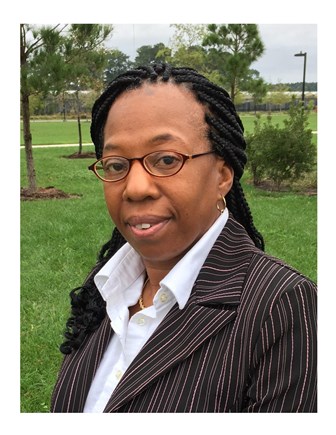
Somerset native embraces agriculture education
Wednesday, November 21, 2018
Annette Kenney is proof it’s never too late to pursue a college education.
On the cusp of turning 50, Kenney earned a bachelor’s degree in agriculture from the University of Maryland Eastern Shore in December 2016.
And she isn’t finished.
Kenney is a master’s degree candidate at UMES, where she is focusing on plant and soil science. The working title of her thesis is: “Examining the persistence and survival of e. coli on (raw) manure-amended organic soil.”
Kenney said she’s motivated “to help young people understand what agriculture is, and how important it is to our everyday lives.”
“They need to care about the land,” she said.
Earlier this year, the Delmarva Poultry Industry Inc. (DPI) awarded Kenney a $4,000 scholarship. She was the lone graduate student in a group of nine college students to receive financial aid from the regional agriculture trade group, and it’s safe to say, the only grandmother.
A DPI spokesman said Kenney is just the second UMES graduate student to earn a scholarship from the group – Jorge Rodriquez of Salisbury was the first in 2009 – and she holds the distinction of receiving the organization’s largest-ever award.
“DPI’s college scholarship program aims to support the next generation of leaders in Delmarva’s chicken industry,” DPI executive director Bill Satterfield said.
“We were impressed by the caliber of this year’s applicants,” Satterfield said. “And we’re awarding more scholarships than we did last year to encourage young people to consider all the interesting and rewarding ways they can be a part of Delmarva’s $3.4 billion chicken economy.”

The $4,000 from DPI comes in handy for Kenney, a mother of two with a son who is a senior at Morgan State University.
“It allows me to free up a few dollars to pay a few bills,” she said.
Kenney grew up in Somerset County, the second youngest of 16 children and the first to earn a college degree.
While her father dabbled in farming, he supported the family as a UMES maintenance worker over 40 years.
“I guess you could say I sort of grew up on the campus,” Kenney said. She was unaware, however, UMES was founded as a school emphasizing agriculture studies.
Kenney was unable to attend college after high school, but harbored a desire to earn a degree.
Several years ago, she enrolled at Wor-Wic Community College in Salisbury, where she initially was interested in hospitality studies with a goal of opening a bed and breakfast inn.
A mentor encouraged Kenney to continue her studies beyond earning an associate’s degree, and Kenney recalls an encounter with UMES professor Corrie Cotton with giving her focus.
“When I heard (Cotton) talk about the importance of agriculture, I knew I wanted to do something in STEM (science, technology, engineer & math),” Kenney said. “Where food comes from sparked my interest.”
Cotton describes Kenney as “an exceptional, energetic, and enthusiastic lady who is always willing to help others.”
“She is very outgoing and has performed extremely well academically,” Cotton said. “I have been very impressed with Annette’s drive and determination to excel academically and socially.”
Aided by a Natural Resources Conservation Service scholarship provided through the U.S. Department of Agriculture for undergraduates attending land-grant institutions, Kenney said it didn’t take long for her to discover agriculture studies – specifically the role of soil.
“It’s the heart of where food comes from,” she said. “I realized, I can do this.”
Kenney remembers early on a class where soil health was the topic. “The soil is alive,” she said. “I never thought in those terms.”
“What is it I might be able to do to makes sure we have safe food and enough food?,” she said. “I wanted to be part of that.”
While an undergraduate, she also studied overseas in Ghana and Costa Rica during summer breaks, volunteering on agriculture projects and making connections with governmental and private companies collaborating to improve the agriculture industry abroad.
As a graduate researcher, she splits time between a lab, the campus farm and an organic farm in Elkton near the Pennsylvania border. She also puts in about 20 hours a week as a teaching assistant.
Dr. Fawzy Hashem, Kenney’s thesis supervisor, calls Kenney “one of the best graduate students I have (supervised) during my long career” as a food science researcher.
Kenney said she’s “learned that if you treat the soil right, it will treat your right.”
Which means she must have a productive garden at her home in Marion, right?
“Not, yet,” Kenney said. “I don’t have time.”
It might be a while. Kenney is hoping to go on and earn a doctorate.
Kenney’s long-term goal is “to work closely with schools and young people. These young people need role models

